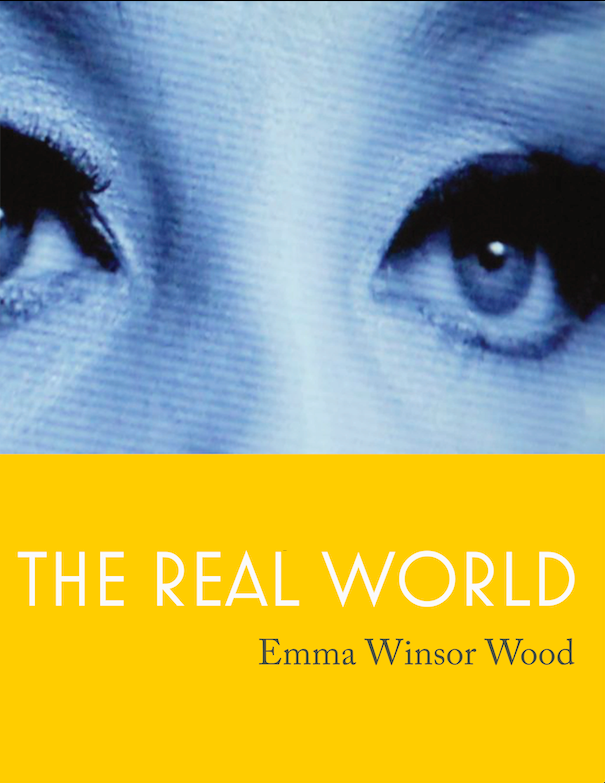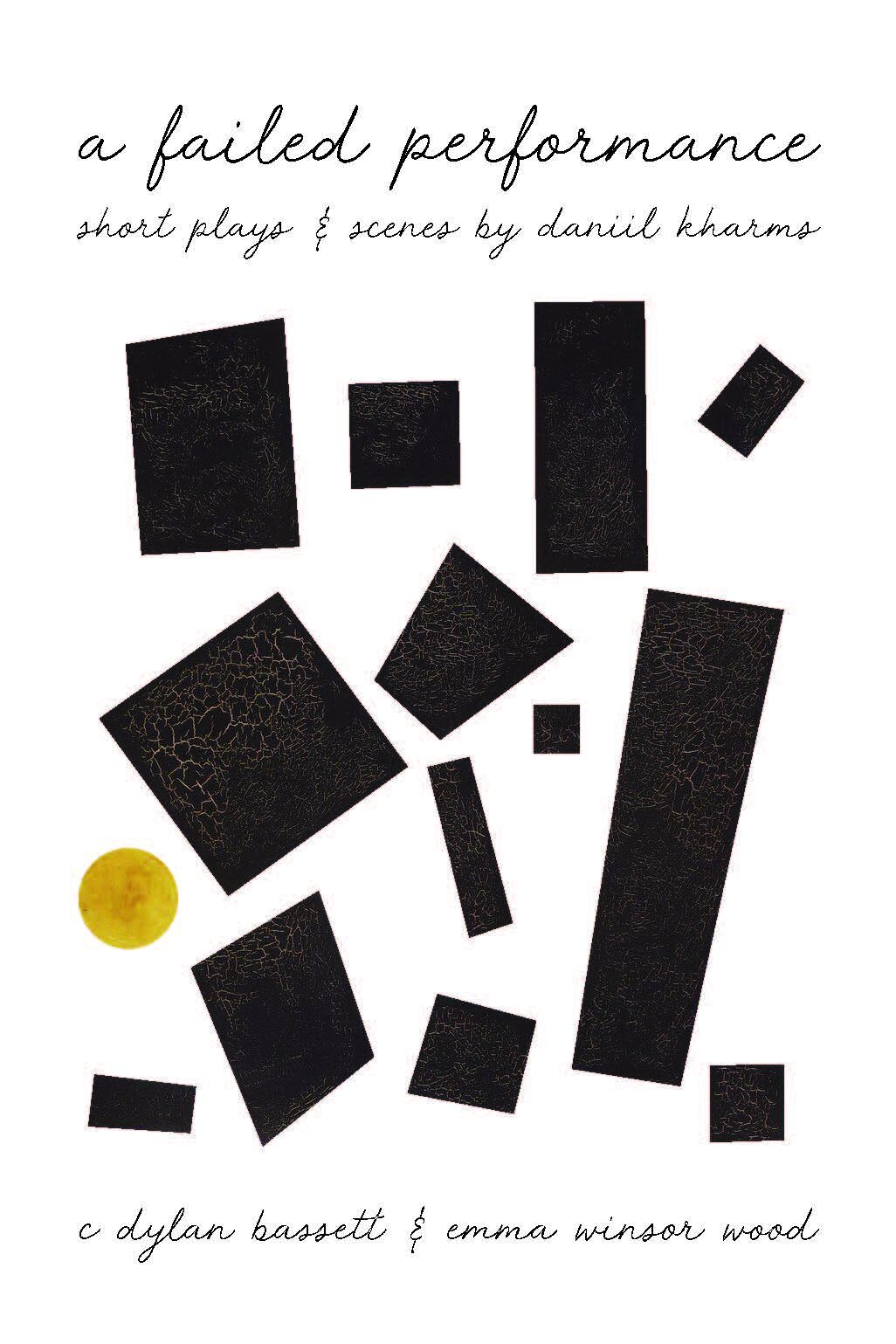Books
-
THE REAL WORLD enacts the schizophrenic nature of late capitalism through dizzying tonal slippages—the same poem can move from ironic to mournful to panicked to deadly earnest to funny and back. Inspired by TV shows and generated partly through mechanized Dada methods, THE REAL WORLD circles the emptiness felt in a world in which even the emotions we feel have been invented by the media, a world in which there is an economy of everything—even of feeling. Moving through the surreal landscape of pop culture, the poems are unable settle on a single object or position. They are polyvocal, confused, strange. There is no stable speaker, no core self. All the rooms are sets—with one wall open and symbolic sinks that don’t actually work. As Wood writes:
Hell isn’t other people.
Hell is this personal
algorithm,
the devil a sexy nihilist
bandit everyone wants.
Praise
Anyone who in recent years has been paying attention to what’s going on in the public sphere, the media, and even in one’s private life will perceive in the title of Emma Winsor Wood’s brilliant book The Real World a curl of irony. That is certainly present—and for good reason. The main instrument at work in what one might call the perpetual modernization of the cultural environment is reality production, the generation of commodities and simulacra and the fostering of a taste, and even a desire, for them. Emma Winsor Wood has made herself literate in the vernacular of this “real world,” watching its ongoing commodity melodramas, witnessing the dramatic unwinding and rewinding of streamed realities. And she has done so while conducting a wry and surprisingly happy flirtation with cynicism. That happiness is fostered by Wood’s sense of the absurd as in many ways glorious, as for example in the magnificent final work in the book, “Westworld,” a foray into a landscape of triumphant pathos and ridiculous sublimity. The hilarity may be worth the trip. Most of us don’t know how to deal with the reality of the unrealities in which we find ourselves living. Wood shows us one way to do so—and it’s a great one, one in which we can be real.
— Lyn Hejinian
Presently, we find ourselves in a frantic cinema of climates and hasty accommodations, of what Wallace Stevens once described as "chaos in motion and not in motion." And necessary to our survival, it would seem, is a frantic commerce between miracle and kitsch. In The Real World, Emma Wood shows herself to be the true cineaste of this commerce. The poems here are scripted to menace and tenderness, design and desire. As unimaginable as the future is, I believe that Wood has imagined it. This is visionary writing.
— Donald Revell
Much like Marshall McLuhan’s maxim, “the medium is the message,” The Real World is an experimental realization that examines the endlessly-shifting relationship to the self through a video-camera lens. The traumatic is described with calmness, excitement is cast in dazzling dislocations. The telecast is a mirror, the medium as important as the content: “The trees make leaves. / The persons buy lives on e-Bay.” Through Emma Winsor Wood’s playful-yet-poignant poetic and imaginative declarations, the bizarre and mundane meet in successions of intriguing premonitions, with the projection of tragedies as imagined by a nation of television addicts.
—Geoffrey Gatza, author of A Dog Lost in the Brick City of Outlawed Trees, Mute Canary Press
The Real World is a book of poems for the startled mind, drenched by rushes of image (life) and searing against the insides of our screenburnt eyelids. Emma Winsor Wood reminds us that commercials are meat, our songs algorithmic, and yet inside the refracting hallucinatory spectre: we still, she thinks, can live.
—Kelly Schirmann, author of Popular Music and The New World, Black Ocean
Emma Winsor Wood’s The Real World takes us on a trip through our media-saturated world of wastes and wonders. It has all the immersive, propulsive power of the reality shows I binge-watch and of any book by Chelsey Minnis. And yet Winsor Wood’s collection lives its most astonishing life at the level of the line. In the words of Emily Dickinson, it hits “a World, at every plunge.” At one moment, “The sky is a very nosy librarian.” And at the next, “Feelings are solid-gold toilet seats.” By her attentiveness to each impression of the bombarded mind, Wood offers us a world that is constantly made new, that is only familiar because it is real.
- Amanda Auerbach
Emma Winsor Wood's The Real World skids along the surfaces of pop culture, shredding its slick packaging of human experience, repurposing those fragments to reveal the vast abyss we've been perched on all this time. Inventive and startling, these poems are part cultural critique, part existential horror, as entertaining as the entertainment they skewer. This book asks again and again what is real, and its answers spin in delightfully funny, maddening circles: "In simple terms / I am an escapist illusion on a branch."
- Melissa Ginsburg
-
People disappear without explanation. The government takes hostages. War and death occur without reason or meaning. The cycle of poverty and deprivation proliferates. A FAILED PERFORMANCE, translated by C Dylan Bassett and Emma Winsor Wood, is a collection of bizarre and darkly humorous plays and scenes from the Russian avant-garde writer Daniil Kharms. This collection--the first volume in English dedicated entirely to Kharms's dramatic works--includes his major stage plays Elizaveta Bam and Lapa as well as lesser-known sketches and hybrid poem-plays, most of which were never published or performed during his lifetime.
Praise
“Kharms's writing for me is like molecules that combine and re-combust an expected time creating another world. That is on one hand real and on the other unreal. It is its duality that gives his brilliant text power.- Robert Wilson, award-winning directorReading Kharms relieves us of the burden of making sense of the senseless. I lose my head reading these plays, but for this exact world, I'm better off without it. Maybe there'll never be a time not to read Kharms, but now is not one of those times.”
- Zachary Schomburg, poet & translator
“It's hard to read these rescued short plays and scenes by Kharms and not think of his vulnerability as a writer living under Stalin and the irrational state. The date of each piece tells us the time running out on his destiny. He is brave; every mention of food is heartbreaking; you hope he was consoled by the sheer act of writing, by continuing to create for as long as he could. Russian culture and literary history thank the friend who saved his papers.”
- Darryl Pinckney, playwright & Kharms adapter
“Kharms, like many humorists and poets, benefits from the constant renewal, and the forthcoming A Failed Performance (Plays Inverse), a free-wheeling translation by poets C Dylan Bassett and Emma Winsor Wood, with its focus on sounds, rhythms and wordplay, is the richest and funniest to date.”
- Kris Bartkus, review in 3:AM Magazine

